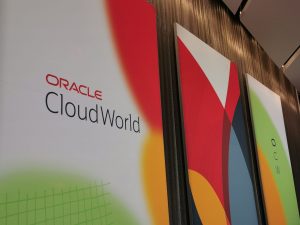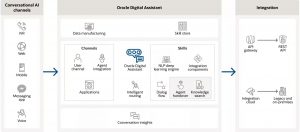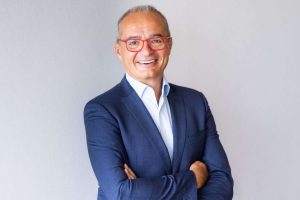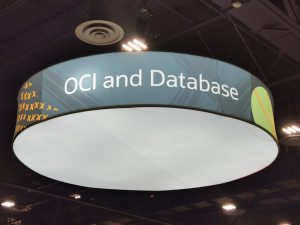Oracle Aims to Revolutionise the Healthcare Sector

The injection of generative artificial intelligence in its platform together with technology from Cerner makes Oracle’s offering the most complete and efficient in the market for the Healthcare sector.
For Oracle, the healthcare sector has become a totally strategic segment within its offering. The acquisition of Cerner, a company specialising in the digitisation of healthcare, confirmed this at the end of 2021 (approved in June 2022), one of the most important sectors in the world.
At the time it was a risky bet if we consider the amount of the operation (28,300 million dollars), but the truth is that the combination of both technologies, those of Cerner and Oracle, have turned this segment into a giant that will provide everything necessary for any entity when it comes to health management (from clinics and hospitals to regional governments) to tackle digitalisation in capital letters and, most importantly, with artificial intelligence as a great lever to help both professionals and patients in their day-to-day lives.
On the other hand, the move has allowed Oracle to grow its revenues over the last few quarters, strengthening its stock market position and financial strength.
In concrete terms, Oracle has developed a set of solutions to modernise Electronic Health Records (EHR), improve the caregiver experience and enable more connected, high quality and efficient patient care, as Larry Ellison, Oracle’s president and CTO, explained at last week’s Oracle CloudWorld conference in Las Vegas, where Silicon was in attendance.

And all of it, of course, connected to the Oracle Cloud and stored securely and privately in the Oracle Database. It should not be forgotten that the medical data of patients and professionals is probably the most critical of any known sector.
All the way from the medical professionals’ computers to the servers located in the various Oracle Cloud regions, the manufacturer has added a component that Ellison highlighted as unique in the industry, its RDMA (Remote Direct Memory Access) network. In practice, this technology allows any computer to have direct access to the memory of another computer without the need for the data to be processed by the CPU or the operating system. All this with high bandwidth and low latency to move large volumes of data from one place to another instantaneously.
But why would it be necessary to move data from, say, our GP’s computer to Oracle Cloud Infrastructure (OCI) servers?
The main answer has two acronyms: AI. And this is where the real revolution that Oracle wants to expand in the healthcare sector comes in.
Let’s take the example of a patient who goes to his appointment with his GP to explain his ailment. At that moment, Oracle Clinical Digital Assistant is already activated and is capable of understanding, transcribing, storing and processing the entire conversation between the two people. With this system, the doctor will not have to type in the patient’s records everything he or she tells the patient, but will have to attend to the patient and look him or her in the eye at all times while the conversation is taking place.

The digital clinical assistant (running on Oracle Cloud) does the rest of the work, but it is also capable of suggesting to the doctor “instantly” from treatments to medication or any other usual action in these cases.
This is because this assistant has been trained using generative artificial intelligence algorithms and machine learning based on all the information it has, so it has the experience of millions of cases previously stored and processed in Oracle’s cloud in a totally private and anonymous way (as the company itself insists on pointing out).
Obviously, this system is not intended to replace doctors, nurses or any other professional who has to make decisions in health matters, but simply as an assistant to suggest actions based on all that experience. And it does so, moreover, in a natural language to achieve the best possible experience.
This specific case, that of the relationship between GP and patient, can be extrapolated to any other in the healthcare field, such as that of specialists when they are studying an X-ray or a CAT scan. The wizard will be able to search for any relevant element to suggest actions.
Oracle’s system is designed to interconnect everything, in such a way as to significantly improve the vision that professionals can have when dealing with a clinical case and subsequent decision-making. Thus, thanks to voice commands, the digital clinical assistant will be able to display a patient’s MRI results when the doctor asks for them by voice. These results will arrive in relevant order so that the professional can understand and react more quickly without having to search for or relate information stored in different parts of the medical record.
A technology that can be extended to Spain
Despite the marked differences between the US and Spanish healthcare sectors (or the European social security model in general), the company assures that Oracle’s technology is ready to fit in any country. In fact, its architecture “ensures the highest levels of privacy that can be achieved today in the technology sector” (something essential in data as sensitive as those handled in healthcare), as Albert Triola, general manager of Oracle Spain, with whom we had the opportunity to chat during the Oracle Cloud World held in Las Vegas, explained to us.

“It is historic that someone like Oracle has decided to focus on the healthcare sector, not only with a technology, but with a complete service that encompasses data management, generative artificial intelligence, and the computing power needed to process all that information,” added Triola.
So technology is no longer an impediment, now the next step is for decision-makers to decide to use it to improve the healthcare sector considerably, both in terms of service and costs: “If healthcare professionals can avoid those manual tasks of data entry and searching for information, they will be more efficient and will be able to spend more time with patients.
The executive assures that this is a great opportunity for administrations and decision-makers to make a serious commitment to technology in the healthcare sector.
Another of the components that Triola highlighted and which could be very attractive for the health sector in Spain is human resources management. This component, through Oracle’s ERP, can also be combined with the aforementioned to achieve a fully integrated system.
This writer also had the opportunity to talk to Jose Rodríguez Maniega, director of Oracle Health in Spain and former head of Cerner in our country. Without being able to give us specific details of its strategy in Spain, Rodríguez did point to the scalability offered by the platform to adapt to the different levels of service that any organisation may need, from a small private clinic to a hospital, including the public health services of any Autonomous Community.
But Triola went further: “One day we will see an integrated health system at national level regardless of the management of regional governments, I am positive about this”. The key lies in the fact that each patient’s data, his or her history, travels with him or her anywhere. Not physically, but through the cloud, where everything will be stored and accessible by authorised healthcare professionals.

At the European level this does not seem so likely (for reasons of privacy and national security), but in the not too distant future there could be a large Data Lake with anonymous data so that the European Union and those responsible for health in each country can know the exact state of the population’s health.
Triola referred to a project that a country in the old continent is working on, which consists of analysing all medical prescriptions in real-time in order to detect possible anomalies or behaviours and thus facilitate early solutions. This is something that, by ensuring the anonymous nature of this huge amount of data, could be carried out in the European Union and would allow us to know exactly what is happening in health matters and make decisions in emergencies in a more agile and efficient way.
Both executives agreed that the Healthcare sector has become strategic for the company in Spain thanks to the innovations achieved in the last two years together with the acquisition of Cerner’s intellectual property, the last one announced during the Oracle Cloud World about generative artificial intelligence, a component that, in any of its forms, is revolutionising the use of technology and data in practically any professional field. Healthcare is no exception.